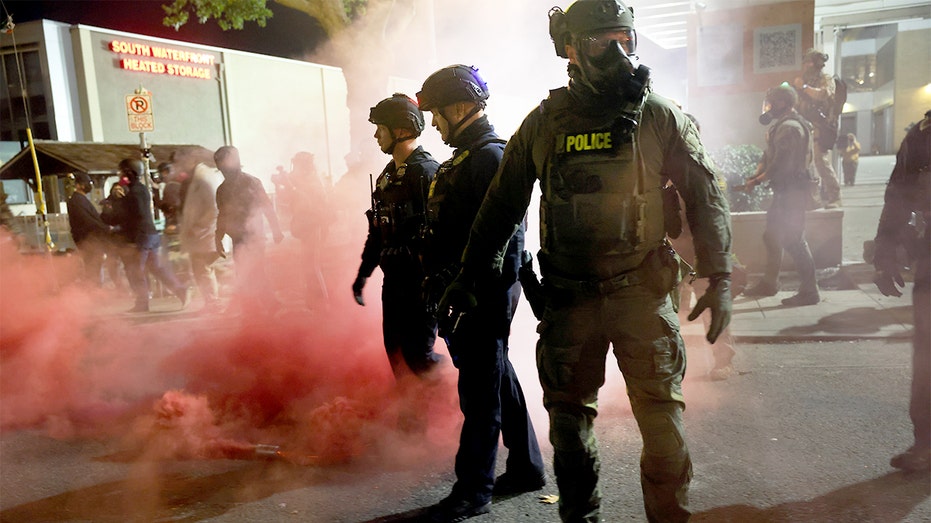TRUMP'S TROOPS: COURT BATTLE EXPLODES!

The battle over presidential power and states’ rights has taken a dramatic turn. A federal court has agreed to a full rehearing of a case concerning President Trump’s authority to deploy National Guard troops – this time before a larger panel of judges. The move throws into question a recent decision that initially sided with the administration. The legal fight began with two restraining orders issued by U.S. District Judge Karen Immergut, halting any deployment of California National Guard soldiers, and then *all* National Guard troops, to Portland, Oregon. Immergut, appointed by President Trump himself, questioned the justification for federal intervention in the city. A three-judge panel of the Ninth Circuit Court of Appeals initially overturned one of Immergut’s orders, appearing to grant the administration a victory. However, that victory proved fleeting. The court swiftly reversed course, deciding to hear the case “en banc” – meaning before the full eleven-judge panel. This isn’t simply a legal technicality; it signals a deep division within the court and the gravity of the constitutional questions at stake. The core issue revolves around the limits of presidential authority when it comes to deploying military forces within U.S. states. A trial is already scheduled to begin in Portland, presided over by Judge Immergut. Witnesses from both sides will be called to testify, including officials from ICE, the War Department, and the Federal Protective Service. The city and state of Oregon are arguing that the proposed troop deployment represents a dangerous overreach of federal power. Judge Immergut has already expressed strong reservations, characterizing the protests in Portland as relatively small and insufficient to warrant federal military intervention. She powerfully asserted that the deployment could infringe upon Oregon’s state sovereignty. Her written arguments echoed a fundamental American principle: resistance to government overreach, particularly the intrusion of military force into civilian life. She framed the debate as a choice between constitutional law and martial law – a stark and unsettling dichotomy. The dispute unfolded against a backdrop of escalating rhetoric. President Trump, speaking from the Oval Office, described Portland as “burning down,” painting a picture of chaos and unrest. Oregon’s Attorney General, Dan Rayfield, vehemently countered that narrative, stating, “Portland is not the president’s war-torn fantasy.” Rayfield accused the president of attempting to use the Oregon National Guard as a “tool” for political theater, emphasizing that the city was not “ravaged” and there was no “rebellion.” This case isn’t isolated. President Trump had previously deployed or threatened to deploy troops to other Democratic-led cities, including Los Angeles, Washington D.C., Chicago, and Memphis. The rehearing promises a renewed and intense scrutiny of the constitutional boundaries between federal and state power, with potentially far-reaching consequences for the balance of authority in the United States. The timing of the “en banc” hearing remains uncertain, but the stakes are undeniably high.
Share this article
Related Articles
Trending Now
Article Info
Category
Politics
Published
Oct 29, 2025
Last Updated
11 minutes ago





